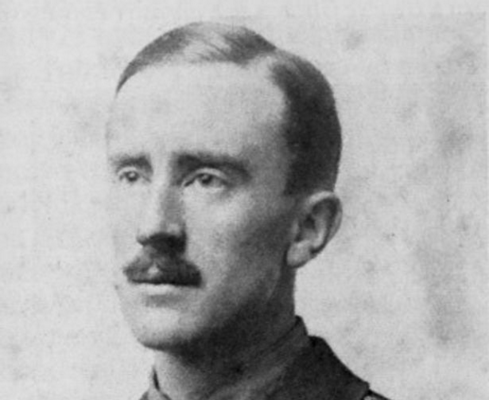
In “Epic Pooh,” a lengthy, cantankerous essay on J.R.R. Tolkien’s Lord of the Rings that savages the trilogy’s nostalgic, middle-class ideology, fantasy maven Michael Moorcock takes a long quotation from a 1969 review by Clyde S. Kilby as his epigraph. Articulating just the view Moorcock rails against, Kilby writes,
For a century at least the world has been increasingly demythologized. But such a condition is apparently alien to the real nature of men. Now comes a writer such as John Ronald Reuel Tolkien and, as remythologizer, strangely warms our souls.
We may uncritically enjoy Tolkien as “redolent of timelessness,” as does Kilby, or see in his work—as does the skeptical Moorcock—a reactionary sentimentalism, “the prose of the nursery-room… meant to soothe and console….”
In either case, the effect is achieved: whatever else we make of The Lord of the Rings—Orthodox allegory, anti-modern polemic, environmentalist fable, etc.—it is also, without a doubt, possessed of a strange power to soothe, to envelop, to transport readers to a plane where all human action (or hobbit, elf, or dwarf) is amplified a hundredfold and given immeasurable significance. In this respect, his work may be compared to the ancient epics that inspired it, though some may think it heretical to say so.
Tolkien fans couldn’t care less. As his biographer at the Tolkien Society observes, “he has regularly been condemned by the Eng. Lit. establishment, with honourable exceptions, but loved by literally millions of readers worldwide.” While hardly a representative of the “establishment,” Moorcock echoes their critical judgments. I am sympathetic to some of them. But then I pick up the books, or watch the sweeping Peter Jackson adaptations, and my suspicions drop away. I can become again the thirteen-year-old reader who spent hours fully immersed in the grandeur, heroism, humor and dread of Middle Earth. This respite from the frequent, harried confusion and fatigue of adulthood is most welcome, even if, in the end, it is found in what Moorcock calls “comforting lies.” But perhaps that’s what we want from epic fantasy, after all, Moorcock’s high literary seriousness notwithstanding.
And as for myself, at least, the full immersion in Tolkien’s world goes double when I hear the author himself read his work. We’ve featured many selections of Tolkien reading in the past—from The Fellowship of the Ring (in Elvish!), The Two Towers, and Rings precursor The Hobbit. Above, you can hear many of these readings and much more, compiled by University of Edinburgh researcher Sean Williams for his podcast Voice on Record (Part 1 at the top, Part 2 above). Along the way, Williams offers much helpful context and reads the liner notes from the original LPs from which these recordings come. And yes, Tolkien does, indeed, lapse into nursery rhyme, in “The Man in the Moon Came Down Too Soon” (or “There is an Inn,” at 10:30 in Part 1), a poem from The Hobbit. In his voice, it is delightful to hear.
Related Content:
Listen to J.R.R. Tolkien Read a Lengthy Excerpt from The Hobbit (1952)
“The Tolkien Professor” Presents Three Free Courses on The Lord of the Rings
Josh Jones is a writer and musician based in Durham, NC. Follow him at @jdmagness


Tolkien is an infinitely better writer than Moorcock, which make’s Moorcock’s comments suspect.
I have read Tolkien many times over, but Moorcock only once through. It may be comforting lies, but the underlying humanity is worth revisiting.